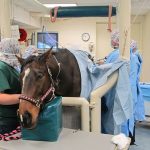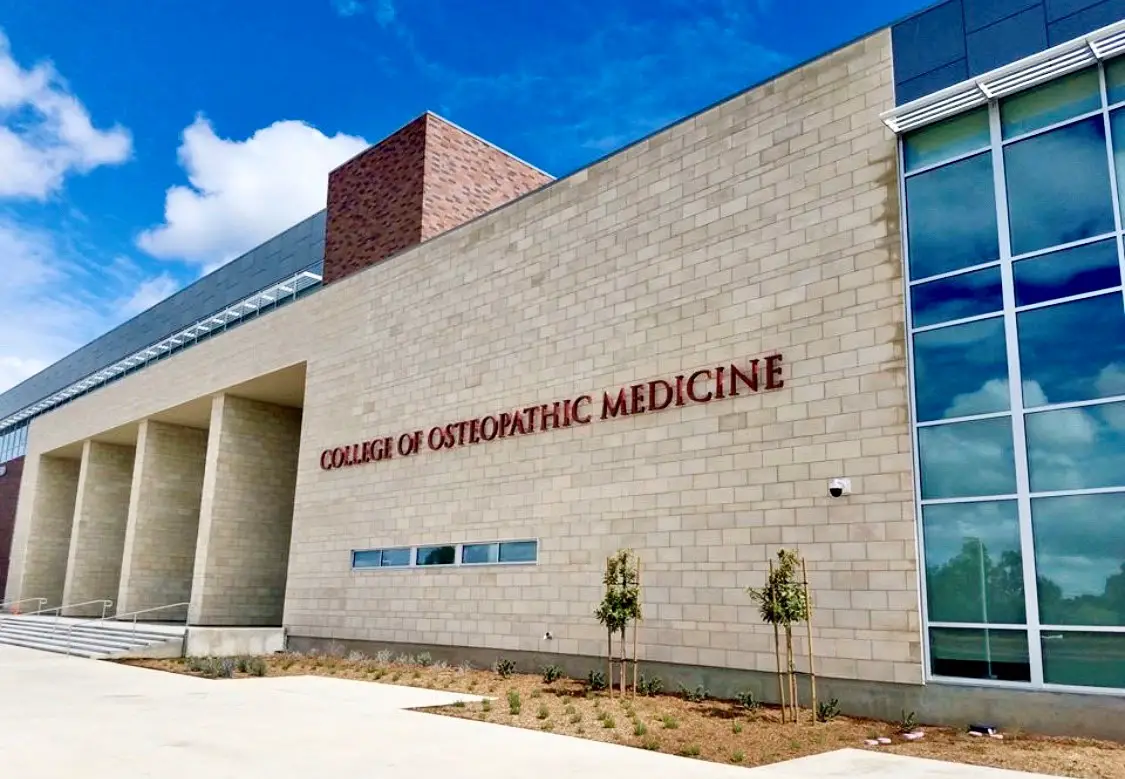Studying veterinary medicine in Maryland or any veterinary program at all is best if you enroll in the best veterinary schools in Maryland. We recommend that students look out for these schools because of accreditation.
Only a few schools in Maryland that are offering a veterinary program are accredited to offer such courses due to the intricacies of the course. Here in this guide, we have made sure you do not have to worry whether or not the school you choose from here is accredited.
We have compiled a list of the best veterinary colleges in Maryland, their unique details, and why you should choose any of them as your possible school. Keep in mind that each of the schools on our list is accredited by the authorized state veterinary service in Maryland.
However, if Maryland does not suit your expectations, check out other veterinary schools in other countries.
Are There Veterinary Schools In Maryland (MD)?
Yes, there are veterinary colleges in Maryland. However, when compared to other states in the United States, the number of schools with veterinary programs in MD is insignificant.
Currently, there are just 3 institutions of higher learning which are accredited and authorized to train you to become a veterinarian in Maryland.
Related Posts
- 10 Best Vet Schools in California
- 4 Best Vet Schools in British Columbia
- 10 Best Vet Schools in Texas To Get Into
- 13 Best Veterinary Schools In Florida | Detailed Guide
- 10 Best Veterinary Schools In Georgia | Detailed Guide
- 3 Best Veterinary Schools In Arkansas | Detailed Guide
- 3 Best Veterinary Schools In Delaware | Detailed Guide
- 4 Best Veterinary Schools In Connecticut | Detailed Guide
What Veterinary Programs Are Offered In Maryland Schools?
If you are looking to get a veterinary medicine degree, Maryland is not the best place to look for prospective schools. The veterinary colleges in Maryland offer just Associate degrees in Veterinary Technology.
Maryland vet schools do not offer bachelor’s, master’s, or doctoral degrees in any of the veterinary programs.
What Are The Requirements To Go To Vet Schools In Maryland?
Because you are going for an associate degree vet program, the requirements are minimal. To enroll in an Associate degree program in Veterinary Technology program in one of the Vet schools in Maryland, you will need to provide official documents of the following;
- Animal experience
- Applicant interviews.
- High school transcripts
- Written personal statement
- Letters of recommendation.
- Admission fee (Specific to each school)
- Proof of health insurance and vaccinations
- Test scores such as TOEFL for non-native English speakers)
- Certain high school coursework (e.g., biology, chemistry, algebra).
What You Should Consider Before Going to Vet Schools in Maryland.
It’s not just enough to want to get into college and become a vet. Before Enrolling into a vet program in any of Maryland schools, there are key factors you must put into consideration some of which include;
- Accreditation
- Acceptance Rate
- Curriculum strength.
- Number of Programs.
- Location of school and safety
- Graduation & Employment Rate.
- Presence of professional teachers.
- Avaliablilry of hands-on practical training.
ALSO READ: 5 Best Football Colleges In Maryland – Detailed Guide
What are the Best Veterinary Schools in Maryland?
As earlier established, there are just 3 accredited vet schools in Maryland, all of which programs are considered high-standard associate degree programs.
Helping you find the perfect school for you is our plan here at Zikky. As such we have done our research and come up with the best veterinary colleges in Maryland for students seeking to become a veterinarian.
Our choice of schools was made based on the overall quality of the school, the quality of the veterinary program they offer based on universal rankings, and the structure of the school to ensure the students gain hands-on training for practice upon graduation.
1. Community College of Baltimore County
- Location: Baltimore County, Maryland
- Veterinary Program Offered: Veterinary Technology
- Tuition: in-district students ($3,712), in-state students ($6,650), and out-of-state students ($9,718) plus $1,430 for study materials.
On the list of best veterinary colleges in Maryland is Community College of Baltimore County. Community College of Baltimore County is a small school in Baltimore County with a student population of 22,887 students.
Each of the programs offered in Community College of Baltimore County are 2-year programs and that includes the veterinary technology program.
The vet tech program at Community College of Baltimore County is accredited by the Middle States Commission, tuition is slightly affordable but you get to also pay for study materials differently.
ALSO READ: 8 Best Veterinary Schools In Ohio | Detailed Guide
2. Garrett College
- Location: Garrett County, Maryland
- Veterinary Program Offered: Veterinary Technology
- Tuition: in-district students ($3,584), in-state students ($7,000), and out-of-state students ($8,120) plus $1,400 for study materials.
Garrett College is a nice small institution suitable for students who want to pursue a degree in a small school setting. The school has just about 713 students.
While there are several degree options at Garrett College, one of the student’s high majors is the veterinary technology program. Unlike many of the vet schools in Maryland, Garrett College’s vet program offers both certificate and associate degree programs and also lasts for two years.
Garrett College is rated as one of the best vet schools due to the quality of the school’s established track record in delivering quality education across many disciplines.
ALSO READ: 4 Best Veterinary Schools In Missouri | Detailed Guide
3. Essex Campus of the Community College in Baltimore
- Location: Baltimore County, Maryland
- Veterinary Program Offered: Veterinary Technology
- Tuition: Not Specified
Essex Campus of the Community College is a good option for veterinary studies because it is the only school in Maryland that is currently rubbing a CVTEA-accredited program in the state.
The veterinary technology program at Essex Campus of the Community College offers a 65-credit Associate of Applied Science (AAS) degree in Veterinary Technology. In 2 years, students learn courses including veterinary medical terminology; veterinary anatomy and physiology; animal nutrition; disease and pathology of companion animals; pharmacology and toxicology; veterinary visualization, and lab coursework.
Upon completion of the program, the students who graduate from the Essex Campus of the Community College are ready for practice. This is so because students can go on internships in local institutions where they get some hands-on training and the skills necessary to pass the Veterinary Technician National Examination (VTNE).
ALSO READ: 10 Best Veterinary Schools In Arizona | Detailed Guide
Veterinary Schools In Maryland FAQs
What next after getting a vet degree in Maryland?
After earning a veterinary technology degree, intending Vets should apply, write, and pass the Veterinary Technician National Examination (VTNE). Next after the VTNE exam, go on to obtain a veterinary technician license.
When is the Veterinary Technician National Examination in Maryland?
Maryland has three VTNE testing periods per year: March 1-31 (application deadline February 1), July 15-August 15 (application deadline June 15), and November 15-December 15 (application deadline applications – October 15).
Do I need a license to work as a veterinarian in MD?
Medical veterinarians need a license to practice in Maryland however, veterinary assistants and animal caretakers do not need a license.
What’s the job outlook for veterinarians in Maryland?
Veterinarians have great job opportunities in Maryland. According to the Bureau of Labor Statistics (BLS 2019) projects that job opportunities will grow by 16% between 2019 and 2029. On the other hand, Projections Central (2021) projects vet jobs in Maryland to grow by 19.2% between 2018 and 2028.
How long are veterinary schools in Maryland?
Maryland vet schools offer two-year programs. So schooling to become a vet in Maryland schools takes two years.
The AVMA-accredited program offered in Maryland will last four semesters, and the internship must take place during the fourth semester. In addition, nine AVMA-accredited veterinary technician programs are available at various online institutions
How Do I Become a Vet in Maryland?
You have an option to become a veterinary technician in Maryland to become that seamlessly you need to first become a licensed veterinary technician.
First things first, you need an Associate’s Degree (A.S.) or Bachelor of Science (B.S.) in Veterinary Technology from any of the veterinary colleges in Maryland. Ensure to the school you enroll in is accredited by the American Veterinary Medical Association (AVMA).
After graduation, you need to register and pass the North American Veterinary Technician Exam (NAVLE). Then, you get your license to work as a veterinary technician in Maryland.
How much do vets make in Maryland?
Vets in Maryland make an average of $29.00 per hour which sums up to an annual earning of $60,458 on average. This is 44% higher than the state average and 50% higher than the national average for all occupations.
What are the available jobs for veterinary graduates in Maryland?
Veterinary graduates get to work in various settings such as veterinary hospitals, animal shelters, clinics (general and specialty), kennels, farms, laboratories, biomedical research facilities, zoos, aquariums, universities, government organizations, and agencies with the protection of animals.
Must I have hands-on training before practicing as a vet in Maryland?
Before practicing as a vet in Maryland, you must gain hands-on experience in a veterinary clinic or hospital.
Most institutions have labs on campus where you can practice and gain experience. You gain this experience working with animals in a clinical setting under the supervision of instructors. These resources are designed to provide additional orientation before the start of your off-campus placement.
Conclusion
Working with this detailed guide above, we believe you have all you need to know about veterinary colleges, schools, and the best institutions for vet programs in Maryland.
Once you have made a choice of institution we encourage you to visit the school website once to find out what the requirements are for your application to the school. Also, confirm with specificity the tuition costs for the program you’re enrolling into.
References
- https://veterinary-colleges.com/maryland
- https://www.academicrelated.com/veterinary-schools-in-maryland/















